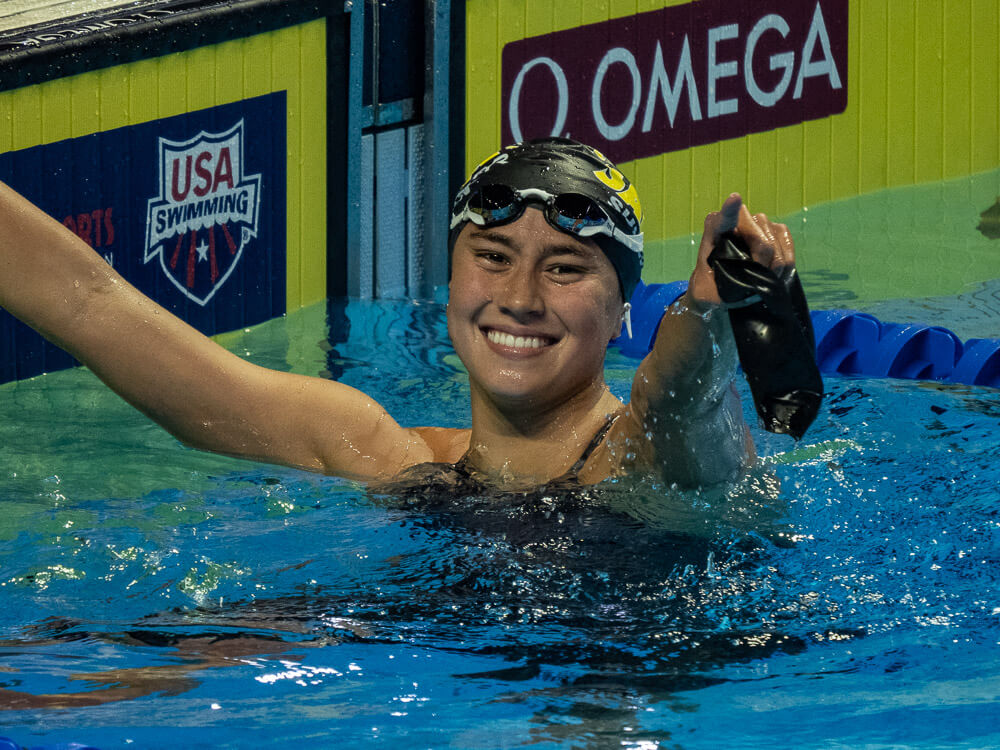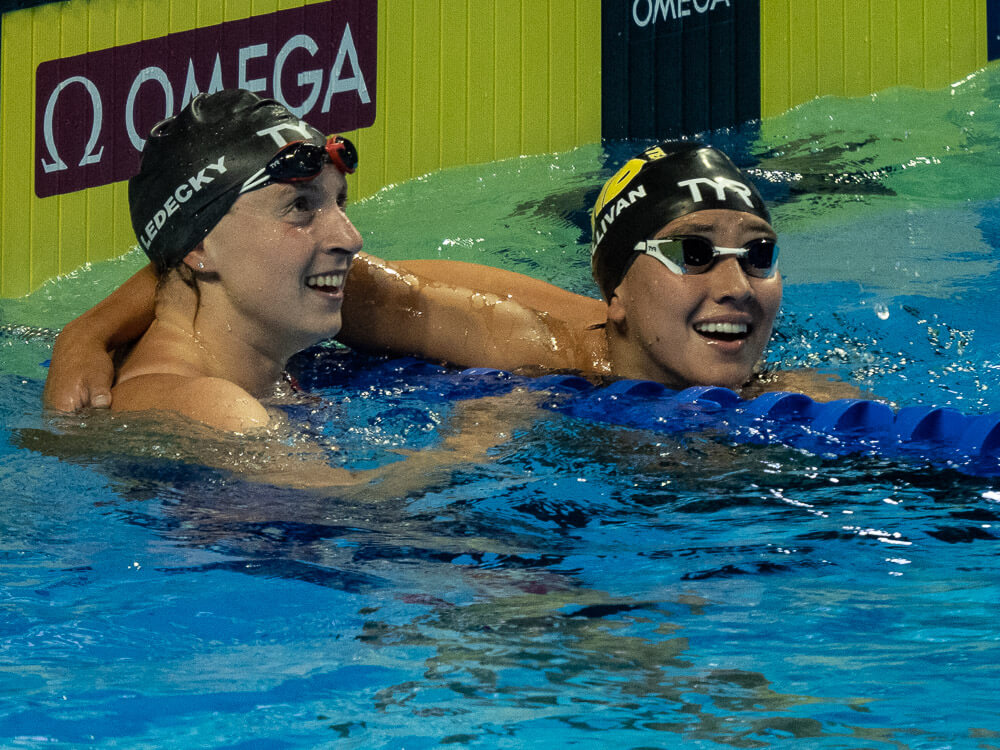Overcoming Tragedy, Olympic Journey of Erica Sullivan Brings Her Home to Tokyo

Editorial content for the 2021 Tokyo Olympic Games coverage is sponsored by GMX7.
See full event coverage. Follow GMX7 on Instagram at @GMX7training #gmx7

Overcoming Tragedy, Olympic Journey of Erica Sullivan Brings Her Home to Tokyo
The dimensions to Erica Sullivan’s rise as an Olympian are myriad, the kind of journey that makes it impossible to encapsulate from just one or two angles.
She’s experienced profound loss and tremendous personal discovery in the last four years. She’s overcome adversity on a path that has changed trajectory, all while blazing a unique trail for an American swimmer.
But most of all, for the Japanese-American swimmer, her complex journey has come full circle by not just with making the Olympics, but doing so in Tokyo. It’s a land she visited often as a child, with deep connections to her mother’s family. Her grandfather, who died in 2018 after battling prostate cancer, worked as an architect on some of the Tokyo venues.
Sullivan wears her struggles and her uniqueness proudly. When she qualified for the Games in the 1,500 freestyle at Trials, she was frank about what she’s had to conquer to get there.

Erica Sullivan, right, and Katie Ledecky; Photo Courtesy: Peter H. Bick
“I’m proud of the mental health barriers that I got through, with my dad dying in 2017 and really hitting a rock bottom in 2018 from the stress of losing a parent at age 16 and having to get over the anxiety, the panic attacks, the depression, the PTSD, all that,” Sullivan said from the mixed zone in Omaha. “I’m so happy that I was able to overcome those.”
Sullivan’s forthcoming nature is hard won. She was born in the United States, her parents settling in Nevada. Her father, John, swam at the University of Wisconsin and worked as an electrical engineer. He met Maco, who worked as a translator, on the job.
Sullivan’s family roots run deep in Japan. They would travel annually to the family’s home in Ofuna, an hour outside of Tokyo. Sullivan has a large family there, and visits involved praying at the family’s ancestral shrine. Her goal for the last decade – Sullivan turns 21 just after the Games close – has been to make it to Tokyo for a country she so loves for the Olympic stage.
Part of that involved Maco’s father’s hand in the Games, and she felt his legacy upon qualifying.
“I’m so glad that even though he’s gone, he’s there in spirit,” Sullivan said, “and I’m sure he’s really proud of me.”
The same is true for her father. John swam at Wisconsin. He was diagnosed with esophageal cancer in 2017 and died three months later, just before 16-year-old Erica made the national team for the first time. It’s a testament to John’s connection to the program that a number of his former college teammates were in Omaha to support Erica at Trials.
“Erica definitely has the heart of a champion,” roommate Regan Smith said. “I’ve had the privilege of being on multiple trips with her and room with her, and it’s just really cool to see the swimmer and the woman she’s become. I’m extremely proud of her. She’s been kicking butt and been on a continuous path upwards, and I’m just extremely proud of her. The hard work that she’s put in for so many years, it’s really paying off in a big way. It’s incredible to see.”
The pain Sullivan dealt with after her father’s passing converged with the pandemic to alter her college plans. She was originally set to attend USC, but after a planned gap year and then the craziness of the COVID-19 pandemic, she deferred for another year. She’ll start at the University of Texas in the fall.
In the meantime, she’s fashioned herself as the self-styled grandmother of the Sandpipers of Nevada program, one that is also sending Bella Sims (800 free relay) and Katie Grimes (800 free) to the Games, both in their teens.
“I know they’re building off their Trials and working really well and everyone’s fitting in really well with the team,” Katie Ledecky said at a pre-Olympics press conference. “I’m really excited to be in the ready room with all three of those girls at some point. It’s fun to have so many young swimmers here, and it brings a lot of life to this team. I just can’t wait to see what they can do.”
Those obstacles alone make Sullivan’s story outstanding. But there’s so much more. Sullivan is, according to OutSports, one of only seven out gay swimmers in the Games. It’s a title she wears proudly (and with the kind of Gen Z energy that makes her Twitter account a must-follow).
She’s also learned to embrace her Asian heritage. She has memories of being bullied for bringing bento boxes with rice wrapped in seaweed to elementary school. Despite being fluent in Japanese and speaking English with an accent, she admits she “suppressed that Asian side of myself,” for many years. It wasn’t until she got through high school that she grew more curious about embracing the culture. As antagonism and outright violence toward Asian Americans has escalated in the U.S. in the last year, Sullivan has been forced into uncomfortable conversations with her mother about safety. But even as she admits her complexion often passes for white, she’s acutely aware of her heritage and wants to represent it.
“It wasn’t until I got out of high school and I really started to crave my Asian heritage and culture, and I really honed into it,” she said. “Luckily I found a community through anime watchers, and I found my own little network that I grew to love.”
Sullivan has also found a supportive network in the pool. And it’s taking her to new heights.




